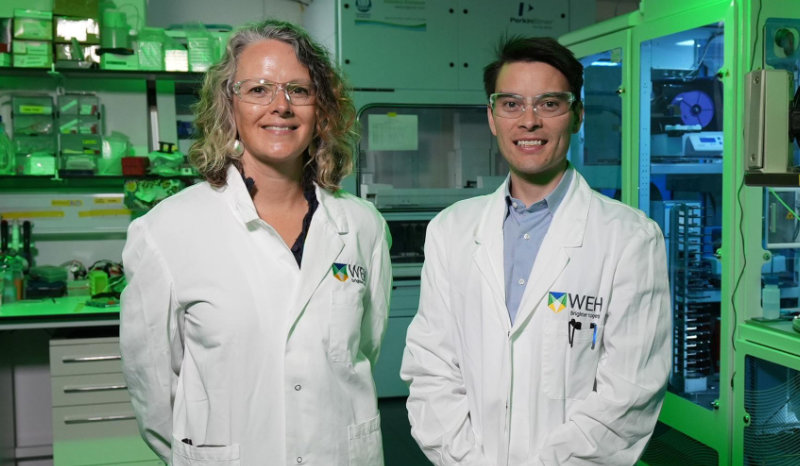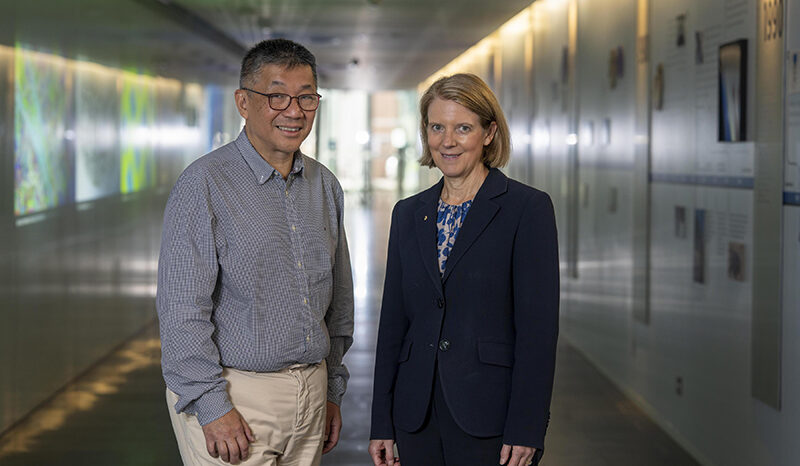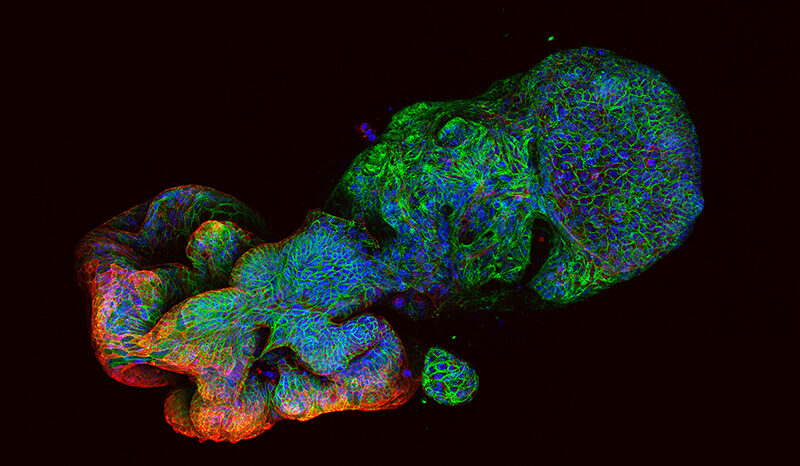Understanding ubiquitin
A leading structural biologist and Head of the Ubiquitin Signalling Division at WEHI, Prof Komander uncovered the key principles in ubiquitin chain assembly and disassembly.
Ubiquitin is a protein that acts like a ‘tag’ to tell our cells which proteins to break down or recycle, an important ‘kiss of death’ process that helps our cells stay healthy and functional.
Prof Komander’s discoveries have allowed researchers to visualise different types of ubiquitin chains involved in recognition and disassembly of damaged proteins.
This has led to new drug discovery projects across a range of conditions, including cancer, rare inflammatory diseases, and Parkinson’s disease.
In particular, the study of linear ubiquitin chains and their role in inflammation processes, has led the researcher to the discovery of a new protein that helps control inflammation, which was named OTULIN.
This discovery further resulted in identification of a severe autoinflammatory disease, which has been named the OTULIN-related autoinflammatory syndrome (ORAS). ORAS is a very rare genetic disease, which can be life-threatening if not treated.
Prof Komander and his team have recently been researching the link between early onset Parkinson’s disease, a chronic and progressive disorder of the nervous system, and two proteins called PINK1 and Parkin as part of their studies into the ubiquitin system.
“Early onset Parkinson’s can be caused by genetic mutations that alter the function of key proteins,” Prof Komander said.
“By understanding the molecular structures of these mutated proteins and monitoring how these proteins become activated and function, we have gained powerful insights into how Parkinson’s disease develops.
“Along the way, we contributed to some of the most important breakthroughs in the field in the last decade.”











